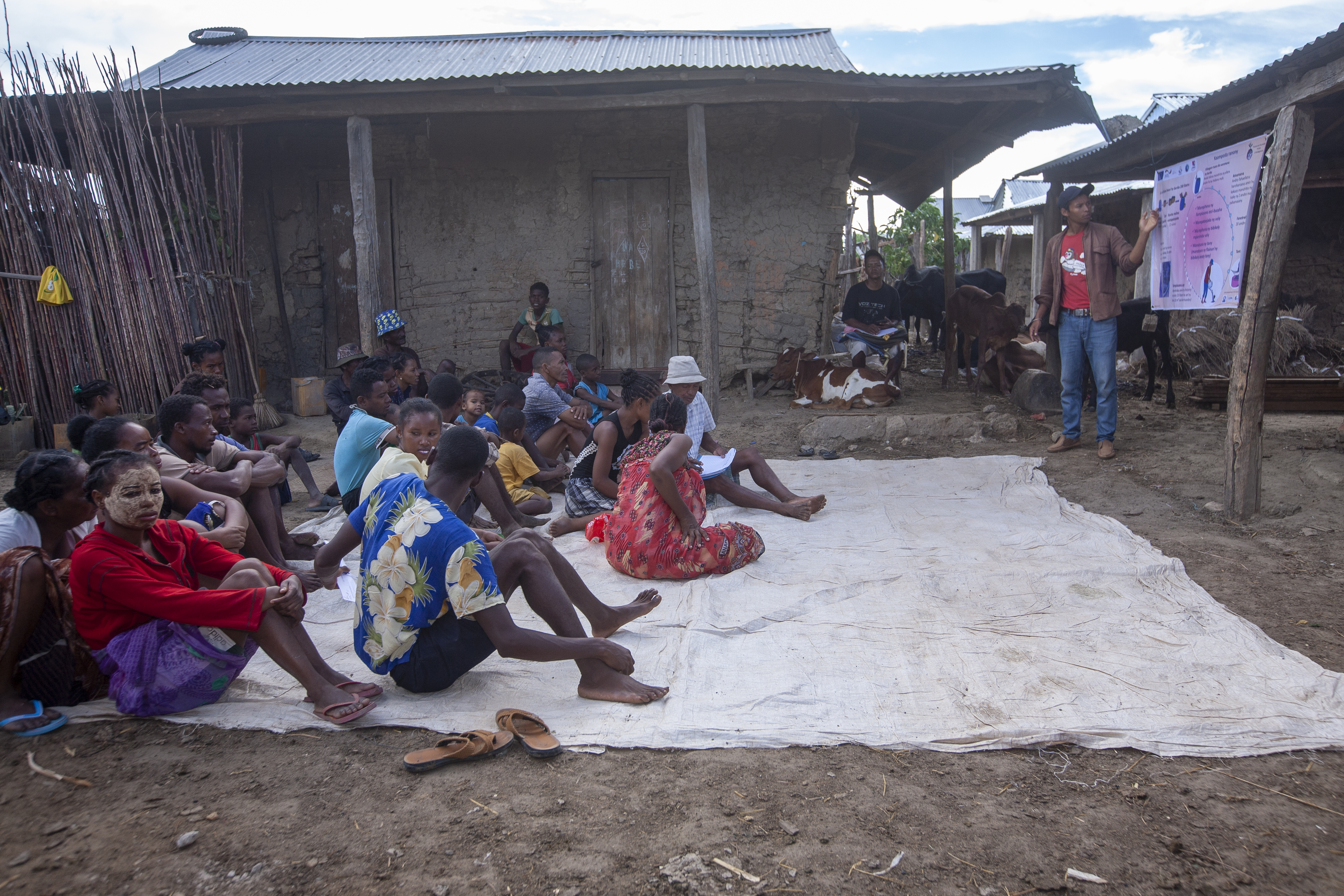

El enfoque Paysan-ne Relais (PR) se basa en un sistema de asesoramiento local que permite transmitir eficazmente los conocimientos agroecológicos dentro de las comunidades rurales. La característica distintiva de este modelo es su difusión horizontal, en la que los RP, seleccionados en función de su compromiso y aptitudes, desempeñan un papel clave en la formación y orientación de sus pares en la adopción de prácticas agrícolas sostenibles.
Los RP son agricultores locales que aplican técnicas agroecológicas en sus propias parcelas y actúan como demostradores para otros agricultores. Organizan visitas sobre el terreno, formación práctica y talleres de intercambio, facilitando el aprendizaje a través de la práctica. A diferencia de los métodos tradicionales de extensión agraria, que a menudo dependen de expertos externos, el enfoque de los RP permite que los conocimientos se apropien mejor y se adapten mejor a las realidades locales.
El proceso de creación de los RP incluye varias etapas:
- Selección de los RP
- Formación inicial
- Puesta en práctica
- Apoyo continuo
- La formación continua, el apoyo de las ONG y la financiación regional potencian la eficacia de los PR. Su aceptación social y su proximidad a las comunidades facilitan la difusión y la sostenibilidad de las técnicas agroecológicas.
- Un proceso de selección basado en criterios claros como la motivación, la aceptabilidad social y las aptitudes agroecológicas permite identificar a los relevos eficaces.
- La adaptación local de las prácticas es esencial. Los agricultores perciben ciertas "buenas prácticas" como inaplicables. El modelo de RP, arraigado en las realidades locales, favorece una mejor adopción de las técnicas.
- Es necesario un equilibrio entre voluntariado y remuneración. Los RP deben ser compensados para garantizar su compromiso sin comprometer su autonomía económica.
- Hay que tener en cuenta las especificidades de género. La participación de "mujeres líderes" permite adaptar el modelo de RP a las limitaciones de las agricultoras, garantizando una difusión más inclusiva de las prácticas.